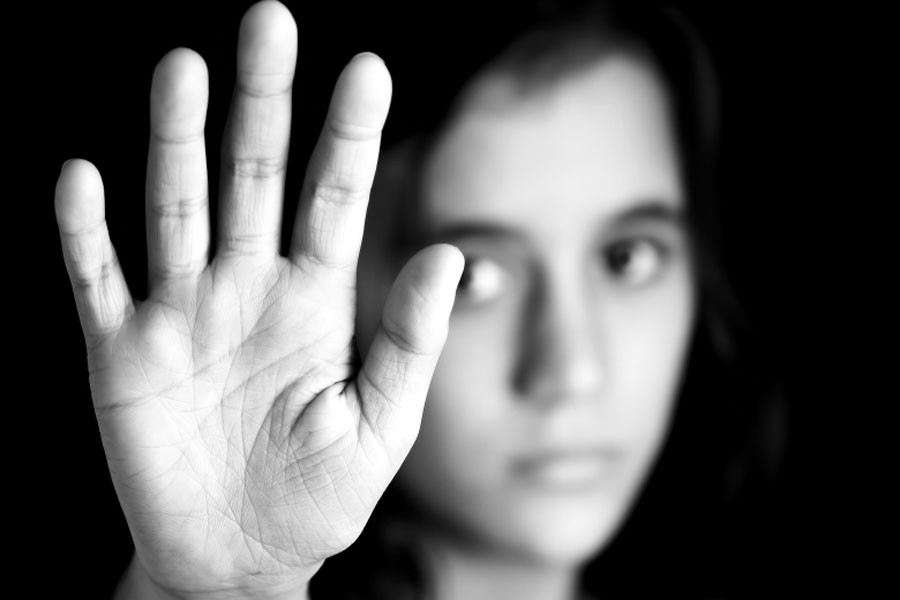Ensuring girls’ safety, security will reduce child marriage in Bhola, study shows

Published :
Updated :

Although the rate of child marriage has decreased in the country due to various government initiatives, child marriage rate in Bhola district is still worrying.
The rate of under-15 child marriage at the national level is 15.5 per cent, but in Bhola, it is around 19 per cent, show study findings, disclosed in a webinar organised by the COAST Foundation on Saturday, said a press release.
The rate of under-18 child marriage at the national level is 51.4 per cent, but in Bhola, it is much higher, around 80.3 per cent, the report further discloses.
Meher Afroz Chumki, Member of Parliament and Chairman of the Parliamentary Standing Committee at the Ministry of Women and Children Affairs, was the chief guest at the webinar titled "Causes, Impact and Ways to Prevent Child Marriage".
Rezaul Karim Chowdhury, Executive Director of COAST Foundation, moderated the event.
SM Latif, director of Child Protection Project at Ministry of Women and Child Affairs, Shaheen Anam, executive director of Manusher Jono Foundation (MJF); Shireen Huq, member of Naripookho; Natalie McCauley, Head of Child Protection of UNICEF Bangladesh, and AH Tawfiq Ahmed, chief of Barisal Division Field office, were present as the special guest in the webinar.
The research was conducted in four upazilas of the Bhola district.
Iqbal Uddin, joint director of COAST Foundation, presented the research report.
The report says that ‘insecurity’ among parents is one of the major causes of child marriage. Some 41.7 per cent of those surveyed identified insecurity as the main cause of child marriage. Other factors include protection of family honour (41 per cent), lack of awareness (44.9 per cent), and poverty (50.9 per cent).
The study also found some 67.3 per cent of girls get married after passing class eight.
Ms Chumki said despite many government initiatives, attitude problems towards girls continues in society.
“To solve this problem, girls need to be made economically self-sufficient, they need to be educated. Local representatives, including UP members and chairmen, should play an active role in preventing child marriage”, she said.
Shireen Huq said not only punishment but also cultural change and social movement are needed to prevent child marriage. Integrated sex education can play an important role in preventing child marriage.
Shaheen Anam said to prevent child marriage and its negative impact, it is very important to bring back the girls who have dropped out of school, we need to ensure reproductive health services for those who are already married and we need to make the concerned people, including the Upazila-based child marriage prevention committee accountable.
SM Latif said a study found that some 33 per cent of parents find child marriage acceptable. This situation must change. The reasons for child marriage vary widely in different areas. Division-based programmes are required to address this.
Natalie McCauley said social volunteers should actively prevent child marriage. Initiatives need to be taken to change people's mindset.
AH Tawfiq Ahmed said a special focus is required to track the education of girls at the school level. Why girls drop out, where they go - if these are monitored, child marriage could be reduced.
Rezaul Karim Chowdhury said we need to activate local administration and union councils, form village committees in villages, increase security and stipend, stop fake birth registration, shun non-registered Kazis, and carry out campaigns to make child marriage illegal.
Monpura UP member Sultana Razia, Lalmohan UP member Md Kamal Uddin Mizhi, vice chairman of Char Fashion Aklima Begum, UNICEF Child Protection Specialist Monira Hasan, Kashfia Firoz of Plan International Bangladesh, among others, took part in the webinar.


 For all latest news, follow The Financial Express Google News channel.
For all latest news, follow The Financial Express Google News channel.